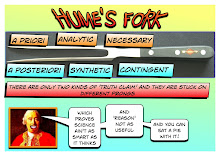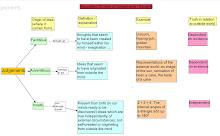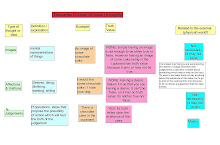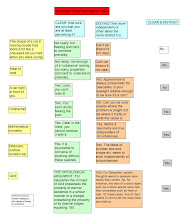Locke goes on to distinguish between 'simple' and 'complex' ideas.
In Book 2, Ch 12, he says that the mind 'exerts its power' on simple ideas in 3 ways:
(1) Combining several simple ideas into one compound one; that is how all complex ideas are made.
(2) Bringing together two ideas, whether simple or complex, setting them side by side so as to see them both at once, without uniting them into one; this is how the mind gets all its ideas of relations.
(3) Separating them from all other ideas that accompany them in their real existence; this is called abstraction, and it is how all the mind’s general ideas are made.
He goes on to tell us that:
'Ideas thus made up of several simple ones I call complex. Examples are ·the ideas of· beauty, gratitude, a man, an army, the universe.'
So, to make complex ideas we take simple ideas and mix them, put them side by side, or try to see them in isolation from other simple ideas that they may be muddled and confused with.
Easy!




















.jpg)







No comments:
Post a Comment